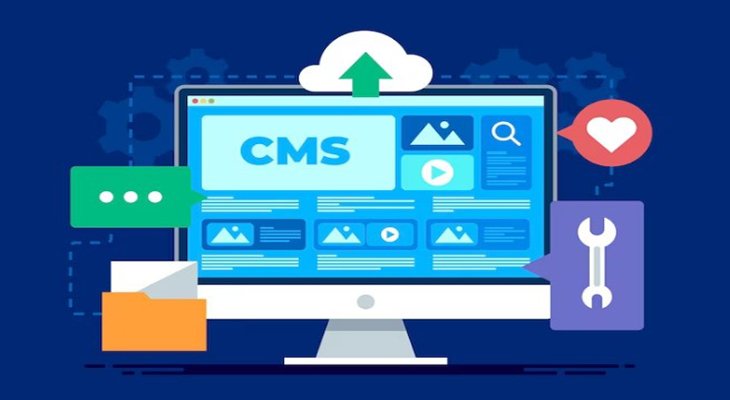
Unveiling the Truth About WordPress: Is It Really Free?
WordPress captivates a global audience with its tag as a free, open-source platform for building websites. Yet, the term ‘free’ sparks curiosity and skepticism alike. Is it really free of any costs?
This piece delves into the heart of WordPress, uncovering the subtleties of its pricing structure. It aims to shed light on what exactly users are signing up for when they decide to journey with this beloved platform.
The allure of no upfront charges meets a reality check as we explore the costs that may not be immediately visible but are part of the broader WordPress experience.
Key Takeaways
- WordPress itself is free as open-source software, but associated costs such as hosting, domain names, and premium features can incur expenses.
- Users benefit from a robust selection of free themes and plugins, as well as regular updates to enhance security and functionality at no additional cost.
- Understanding the full scope of potential costs is crucial, ranging from essential hosting and domain fees to optional upgrades for themes, plugins, and custom development.
- WordPress offers a valuable proposition through its extensive community support, resources, versatility, and SEO-friendly nature, catering to various website types.
- The distinction between WordPress.com and WordPress.org is significant, with the former offering different plans including a free tier, and the latter requiring separate hosting and domain services.
Introduction
The Dual Nature of WordPress: Free to Use, But With Costs
Digging into the heart of WordPress reveals its open-source nature, free for anyone eager to dive in. Yet, launching a WordPress site brings to light various hidden costs not evident at first glance. The beauty of WordPress, free at its core, is somewhat shadowed by the ecosystem’s expenses that ensue.
While diving into WordPress won’t cost a dime, getting your site up and running isn’t entirely free of charge. Key elements like hosting and domain registration come with their own price tags. Let’s break it down a bit:
- Hosting: This is what makes your site live on the internet.
- Domain Name: Think of this as your web address, a unique identifier on the internet.
- Premium Themes/Plugins: These are your tools for boosting your site’s functionality and aesthetic appeal.
- Development: For those times when you need customization beyond what’s readily available.
The investment in your WordPress site can swing widely, shaped by the choices you make. It’s crucial to weigh both the initial and ongoing costs as you map out your WordPress journey.
Unpacking WordPress: How It Sustains Its Free and Paid Models
At the core of WordPress’s success is its smart mix of open-source accessibility and premium options for the more complex needs. The WordPress software, free for all, provides everything needed to set up and manage a website, thanks to a worldwide network of contributors who keep it current and free.
WordPress steps it up with paid plans for those wanting more, outlined briefly as follows:
- Free: Gets you started with basic functions, a preset domain, and 1GB storage.
- Personal ($4/month): Offers a custom domain, round-the-clock support, and 6GB storage.
- Premium ($8/month): Ups the game with better design tools, plugin access, 13GB storage, and Google Analytics.
- Business ($25/month): Unlocks all themes, hefty 200GB storage, live support, and SEO enhancements.
- eCommerce ($45/month): The go-to for online stores with WooCommerce.
This variety ensures WordPress can serve anyone from hobbyists to big enterprises, balancing accessibility with growth-ready solutions. Premium plan revenues feed back into the free core’s upkeep, creating a win-win for all WordPress users.
What’s Included for Free?

The WordPress Core: Zero Cost for Everyone
At its essence, WordPress offers a robust content management system (CMS) free for everyone. It’s an open-source project, meaning its code is free to tweak and improve.
With WordPress core, you get a powerful publishing platform, an intuitive dashboard, a vast array of free themes and plugins, plus regular updates for security and features.
This open access is central to WordPress’s mission, ensuring web presence is possible for all, regardless of budget. While hosting, domain names, and premium add-ons do have costs, the core WordPress experience is always free.
Complimentary Themes and Plugins: Enhancing Your Site at No Charge
WordPress.com is a standout for offering an extensive array of themes and plugins free of charge, making website enhancement accessible to all.
With over 293 themes sorted into categories for every niche and design preference, the perfect theme awaits everyone, from personal bloggers to professional portfolio creators.
Its plugin repository, home to nearly 60,000 options, allows for limitless functionality expansion. Here are some standout free plugins you can integrate:
- Contact forms (e.g., Ninja Forms)
- Page builders (e.g., Elementor)
- SEO tools (e.g., Yoast SEO)
- Security enhancements (e.g., Wordfence Security)
These plugins not only introduce specific features but also support your site’s growth alongside your evolving needs. What truly shines is the ongoing community-driven updates, ensuring these tools remain secure and up-to-date.
Continuous Updates: Keeping Your Site Secure and Up-to-Date for Free
WordPress stands out for its unwavering dedication to continuous, cost-free updates. These updates are pivotal, ensuring your site stays secure, fully functional, and ahead with the latest web tech trends.
They tackle vulnerabilities head-on, roll out fresh features, and boost site performance, all vital for your website’s overall well-being.
Updating your WordPress site is a breeze with these steps:
- Back up your site first. Before diving into updates, ensure you have a safety net.
- Head to the Dashboard. Here, you’ll find updates for the WordPress core themes, and plugins ready to be applied.
- Opt for automatic updates. For a hassle-free maintenance routine, setting up automatic updates is a wise move.
While core updates from WordPress come without a price tag, bear in mind that some premium themes and plugins might need an extra update license or subscription. Remembering this will help you better prepare for any ongoing website costs.
Understanding the Costs
The Essentials: Hosting and Domain Expenses
While snagging WordPress software for free sounds like a deal, actually running a website involves some costs that can’t be sidestepped.
Think of hosting and domain registration as the bedrock expenses for any site owner. Hosting gets your site out there on the internet, while a domain name is like your digital street address, guiding users to your website.
Let’s break down the likely expenses for hosting and snagging that perfect domain name:
- Hosting: This can vary wildly, from a few bucks to well over a hundred dollars monthly, depending on what kind of hosting (shared, VPS, dedicated) and which provider you go for.
- Domain Registration: Expect to shell out $10 to $20 annually for a domain, although splurging on a premium domain can cost considerably more.
Keep in mind, these are the kinds of costs that’ll keep coming back, needing a spot in your website’s yearly budget. Picking the right hosting service and domain registrar is crucial—they’ll affect both your site’s performance and your budget.

Upgrading Your WordPress Experience: Premium Themes and Plugins
Upgrading your WordPress site? Dive into the world of premium themes and plugins.
These tools are not just upgrades; they’re game-changers. Premium themes dazzle with their vast features and customization freedom, from drag-and-drop builders to diverse color palettes and font selections.
They’re perfect for e-commerce, portfolios, and even multilingual sites, giving your website both a functionality and visual boost.
Here’s the skinny on premium themes:
- Expanded features and customization freedom
- Built-in design and management tools
- Special functionalities for niche needs
Plugins, with nearly 60,000 choices, blow the lid off customization, taking your site’s capabilities to new heights. Just ensure your chosen theme plays nice with your must-have plugins for seamless functionality.
Remember, regular updates and dedicated support are crucial for keeping everything running smoothly and up-to-date.
Enhancing Your Site: Web Development and Customization Fees
Even though WordPress is gratis, sprucing up your site usually means dipping into your wallet for web development and customization. The price tag for these enhancements swings widely based on your project’s complexity and the developer’s prowess. Dreaming of a one-of-a-kind theme or snazzy features? That’s where professional web development services come into play.
Customization can be as simple as layout tweaks or as intricate as adding complex features. Here’s the scoop on possible costs:
- Theme Customization: Basic adjustments might cost nada, but a major overhaul? That could run you hundreds.
- Plugin Integration: There’s no shortage of free plugins, yet premium or bespoke solutions will tally up.
- Ongoing Development: Keeping your site in tip-top shape means ongoing developer dough.
Sprucing up your site is more than just a cosmetic update; it’s about creating a standout user experience and gaining an edge over the competition.
The Value Proposition of WordPress
The WordPress Ecosystem: Community Support and Resources
WordPress shines thanks to its dynamic community and a wealth of resources for users. This extensive support network spans official forums to casual peer help, offering a treasure trove of assistance and information.
Quick look at what the community has on offer:
- WordPress.com Support: For users on the WordPress.com platform.
- WordPress Forums: A space for help and knowledge exchange.
- WordPress News: The latest updates and platform news.
- Daily Webinars and Learn WordPress: Tools for skill enhancement.
This network is a godsend for navigating website management challenges. Although direct support for self-hosted sites might be less comprehensive, the community forums and educational materials lay a strong foundation for self-help and learning.
Versatility and Flexibility: WordPress for All Types of Websitesw
WordPress dazzles with its flexibility, making it perfect for any kind of website. Whether it’s a blog, portfolio, online store, or a business site, WordPress molds to fit your vision. Its rich library of themes and plugins empowers users to create a distinct web presence with ease.
Here’s how WordPress caters to a spectrum of web projects:
- Blogs that captivate
- E-commerce sites boosting sales
- Business websites showcasing services
- Portfolios spotlighting creativity
- Educational sites offering resources
- Non-profit websites advancing causes
With WordPress, you get powerful SEO tools, responsive design, and a straightforward content management system. Its open-source essence fosters a community-driven development, ushering in continuous innovation for better functionality and user experience.
SEO and Scalability: Building Your Site’s Future
WordPress shines with its SEO prowess, thanks to plugins like Yoast SEO, making it a magnet for organic traffic.
This feature is a game-changer for businesses and bloggers focused on audience growth. Plus, WordPress scales with you, handling more visitors and content smoothly as your site expands.
The following table illustrates the impact of WordPress features on site performance:
| Feature | Organic Traffic Increase |
| Yoast SEO | 2.7K+ |
| Cloudflare CDN | 12.3K+ |
| Accordion Gallery | 34.9K+ |
These enhancements not only contribute to a better user experience but also to the potential for higher search engine rankings and increased visibility. With WordPress, you’re equipped to build a site that not only meets your current needs but is also primed for future expansion.

Conclusion
In our exploration of WordPress, it’s clear the platform’s core is free, reflecting its commitment to open-source principles. Yet, the real expense of running a WordPress site comes into play with hosting, domain registration, and additional features like premium themes and plugins.
WordPress excels in adaptability and scalability, supported by a vibrant community. It’s a perfect match for various site types, from blogs to e-commerce. While its free entry point attracts many, investing in the site’s growth is key for long-term success.
This balance of cost and versatility makes WordPress an appealing option. It ensures your site can grow with your goals, highlighting WordPress’s value in building a dynamic online presence.
Frequently Asked Questions
Is WordPress really free to use?
Yes, the WordPress software itself is free and open-source. However, there are associated costs such as hosting and domain names that are not free.
What types of websites is WordPress best suited for?
WordPress is versatile and suitable for a variety of websites including blogs, e-commerce sites, portfolios, and forums, thanks to its extensive range of themes and plugins.
Are there any hidden fees with WordPress?
WordPress core is free, but expenses can arise from premium themes and plugins, hosting, and domain registration. There are no hidden fees if you stick to the free core version and complementary plugins and themes.
What is included in the free plan of WordPress.com?
The free plan on WordPress.com includes limited templates and features, 1GB of storage, and is hosted on a predefined domain (e.g., mywebsite.wordpress.com), with no access to plugins.
How does the cost of WordPress.com compare to WordPress.org?
WordPress.com offers free to premium plans, with costs for an ad-free site on your domain ranging from $4 to $45/month. WordPress.org is free to download and install, but requires separate hosting and domain registration.
What does the WordPress.com free plan allow you to do?
With the free plan on WordPress.com, you can choose a theme, edit your site, add pages and content, and opt to remain on the free plan or upgrade for access to additional features and a professional domain.

As a seasoned professional with a unique blend of skills in Computer Design and Digital Marketing, I bring a comprehensive perspective to the digital landscape. Holding degrees in both Computer Science and Marketing, I excel in creating visually appealing and user-friendly designs while strategically promoting them in the digital world.

